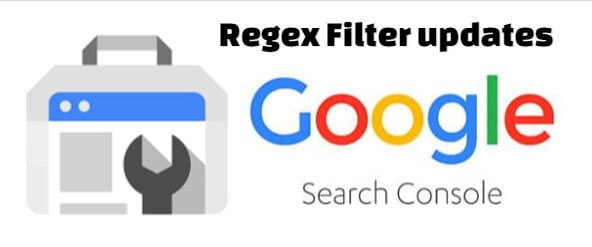Google earlier announced the regular expression filters (regex) that will make the performance reports more useful. Adding on to that Google has updated the performance report that supports both matching and not matching regex filters.
Google introduced regex filters for the users to create more complicated queries and page-based filters and answer to queries that a user likes.
For instance; if your company name is Johnson and Johnson, the abbreviation is Johnson & Johnson and sometimes it can be called J&J. Then you can use the regex filter to find queries regarding all three Johnson and Johnson, Johnson & Johnson and J&J. You will have to define them in the regex filters to get the queries.
Google has updated the regex filter in a way that the performance report supports both matching and not matching regex filters.
This option will appear under the custom (regex) in a secondary dropdown list in the performance report of Google Search Console.

How to use the regex filter on Google Search Console?
“In a few words, it is a sequence of characters that specifies a search pattern. You can use it to create advanced filters to include or exclude more than just a word or a phrase. When using regex, you can use a number of meta-characters, which are characters that have a special meaning, such as defining the search criteria.” – Google Ads
Regex filters can be used to segment the customer who is familiar with your brand.
When you use the regex filters you will be able to specify multiple departures of your company. This may include the misspelling of your brand name as well. When the regex filters are used the brand will get the information regarding the type of queries that are being searched.
“For example, if your company’s name is Willow Tree, you might want to create a filter for all variants like this: willow tree |wilow tree|willowtree |willowtee (the | metacharacter represents an OR statement).” – Google
Regex filters can be used to analyse traffic to a part of the website
When you use the regex filter you will be able to filter out specific directories on the website. This will help you understand the queries that receive in specific areas of the website. When you do that you will be able to improve the performance using this as well.
“For example, if your URL structure is example.com/[product]/[brand]/[size]/[color] and you’d like to view traffic leading to green shoes, but you don’t care about the brand or the size, you might use shoes/.*/green (.* matches any character any number of times).” – Google
Using regex filters will help you understand the user intent better
When you use the regex filters it will help you understand what makes a user come to visit different sections of your website.
“For example, you might be interested in queries containing question words; a query filter what | how |when |why might show results that indicate your content should easily answer questions, maybe through an FAQ. Another example would be, queries containing (or not) transactional words such as buy | purchase |order” – Google
This will also allow you to know the most commonly searched products from your website.
Coming to an end, by using regex filters on the performance report you will be able to measure your performance and improve it.









